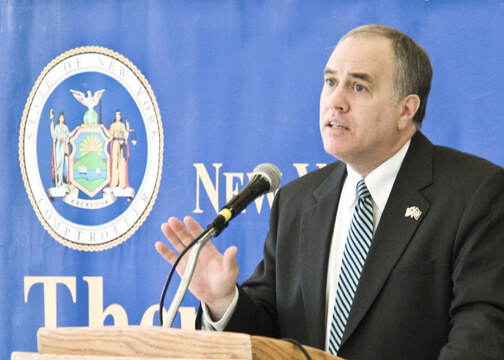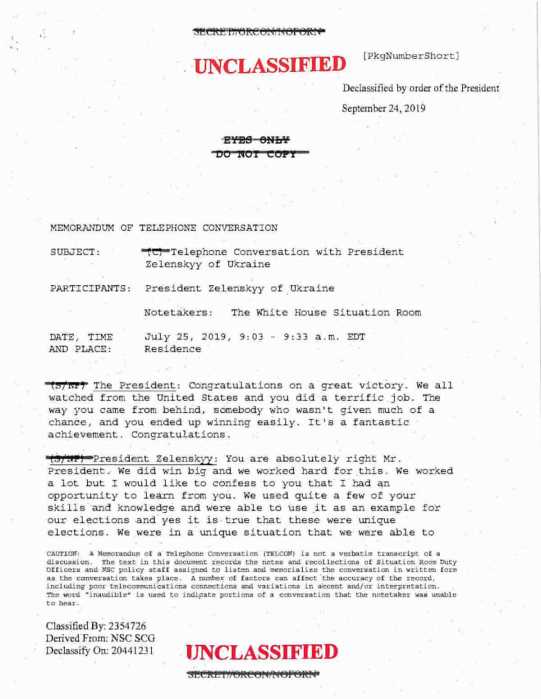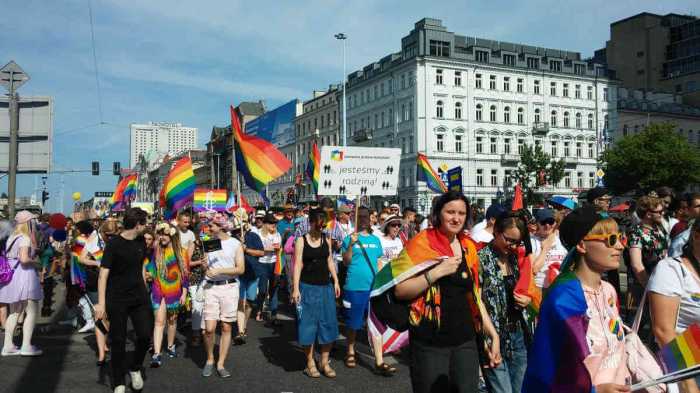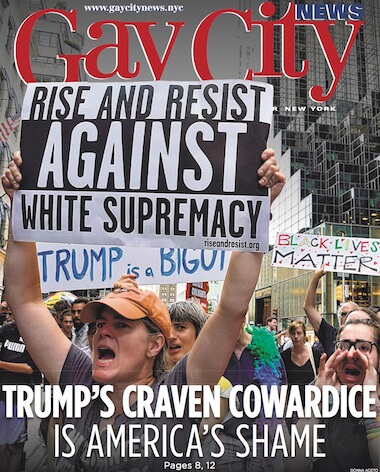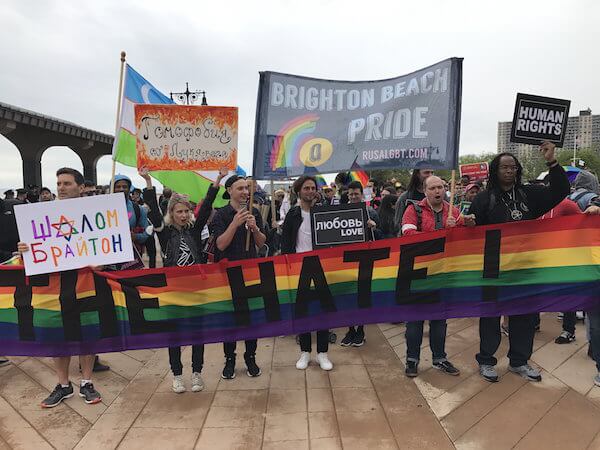Comptroller Thomas DiNapoli. | ANDREW HILL/ NYS COMPTROLLER'S OFFICE
Two of 10 corporate sponsors of the 2014 Olympics in Sochi, Russia have responded to an investor effort led by the New York State comptroller calling on them –– in the wake of Russia's recent enactment of anti-gay legislation –– to “stand up for the respect and equality enshrined in the Olympic movement, advocate for human rights, and confront abuses.” A wave of homophobic violence has swept Russia since the new law was adopted this past summer.
George R. Hamilton, the vice president of Olympic Operations for Dow Chemical –– responding to a December 3 letter from Comptroller Thomas DiNapoli also signed by City Comptroller John Liu and 19 private investment firms –– wrote about the company’s pro-gay policies and said he had “personally, as early as July, expressed our concerns” about the ant-gay laws to the IOC and Sochi Organizing Committee, “as have numerous other Dow employees as they join the planning calls for the upcoming Olympics.” Hamilton agreed that “full inclusion of LGBT employees” is “a business imperative.”
The Swatch Group, makers of Omega, took a different tack, noting that “Omega is official Time keeper of the Olympics since 1932, not a sponsor” — a record that put the company in Berlin in 1936 at the Olympic Games presided over by Adolf Hitler. G.N. Hayek, Swatch’s CEO, writing from the company’s Swiss headquarters, told DiNapoli that the company has never boycotted the Games even when some countries have. Bloomberg News had earlier reported that Swatch issued a statement saying it would be “inappropriate for us to take any position that could have even the appearance of partisanship.”
Hayek went on to chastise DiNapoli over US policies such as “the massif [sic] collection of date [sic] of the NSA,” writing that these threaten “the integrity of our internal confidential information” and “can cause huge damage to our company and shareholders.” He wrote, “As an investor you should… speak up loud about such potentially damaging practices coming from the USA.”
Bloomberg News reported that Coca-Cola “won’t withdraw sponsorship to avoid undermining gay athletes who’ve spent years preparing for the competition. ‘A more positive impact can be made through continued involvement, rather than by sitting on the sidelines,’ Anne Moore, a spokeswoman for Coca-Cola, said by email.”
The other Olympic sponsors approached by DiNapoli were AtoS, General Electric, McDonald’s, Panasonic, Proctor & Gamble, Samsung, and Visa.
The letter called on the sponsors to enforce strong nondiscrimination policies in their worldwide operations, press the Russian government to repeal the new anti-gay legislation, and tell the International Olympic Committee (IOC) “to obtain firm and express commitments from the Russian government” on the safety and rights of athletes and visitors at the Games.
DiNapoli's letter noted the recent protests against the inaction of the sponsors and the activist calls for boycotts of their products and services, emphasizing that taking the actions requested “will help protect your company’s brand and reputation, and, consequently, your profits and our investments.”
DiNapoli, as the manager of the New York State Common Retirement Fund, oversees a portfolio of $161 billion.
On December 10, the IOC announced that the Russian government had agreed to create designated protest zones in Sochi, a move undoubtedly linked to the growing global protest over its anti-gay posture. At the same time, the IOC has been emphasizing the strict prohibition on political activity by athletes at the Games. And one day before the announcement of the Sochi protest zones, Russian President Vladimir Putin appointed Dmitry K. Kiselyov, a stridently homophobic loyalist, to head up a newly consolidated state media organization. According to the New York Times, Kiselyov, last year, said that gays “should be forbidden from donating blood, sperm. And in the case of an automobile accident, their hearts should be buried in the ground or burned.”
Queer Nation NY, which has spearheaded numerous protests against the new Russian law, responded to the IOC's announcement of the Sochi protest zones by calling its president to task.
“Thomas Bach needs to reread the Olympic Charter that he was entrusted to defend,” said Ken Kidd, a member of the group. “Rather than endorsing some imaginary corral where people can be who they are and say what they think, he should be demanding unfettered freedom of expression for all Olympic athletes, attendees, and staff. He seems to think he’s working for the Kremlin.”

